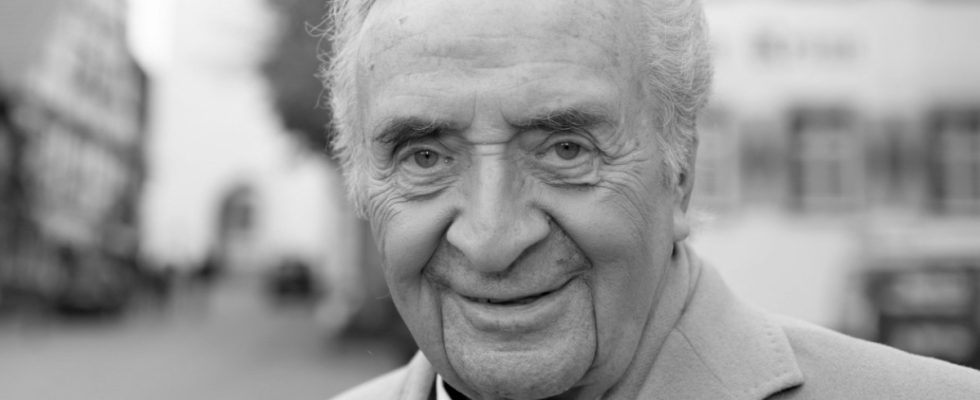With his deep voice and open-minded manner, he became known to an audience of millions: For almost 19 years he presented the ARD series “Kein Schöner Land” and brought Europe’s landscapes and traditional songs into many living rooms. The opera singer and folk song interpreter Günter Wewel died on Tuesday. He was 88 years old.
Wewel comes from Arnsberg in Sauerland – and remained true to his homeland until his death. He fell asleep peacefully, the German press agency learned from his family environment. About his death had previously Westfalenpost and Westphalian Review reported.
After training with the Bundesbahn, Wewel studied opera singing in Dortmund and then became a permanent member of the ensemble at the opera there for decades. With his “basso profundo” he celebrated successes at numerous German and European houses. About 80 roles belonged to his repertoire. He also made a name for himself as an interpreter of folk songs and ballads. A milestone in his musical career was his appointment as Kammersänger in 1989. From then on, Wewel wore the honorary title with pride. It always adorned his letterhead and business cards, and even appeared in his phone book.
However, Wewel became prominent through his many television appearances. At the latest when he was the presenter of the series “Kein Schöner Land” produced by Saarland radio from 1989 to 2007, he became the darling of audiences enthusiastic about folk music. In more than 150 episodes he acted as a kind of travel guide through the most beautiful European landscapes. He presented customs, musical traditions and prominent figures in the region. The first folk music show that was created in the studio at the original locations instead of in styrofoam backdrops became one of the most successful formats in this genre ever – with Wewel as “Captain”, as Saarland Radio called it.
“Likeable, trusting, not aloof”
“The audience loved this credible man, who never came across as a high school teacher, who was able to give them competent reports about music and who, full of thirst for knowledge, wanted to learn more about the country, its people and culture,” said “Kein Schöner Land” director Arno Jos Graf of the German press. Agency ahead of Wewel’s 85th birthday. The makers were looking for a fresh face, “likeable, trusting, not aloof,” Graf recalled.
What Wewel embodied in front of the camera, he also lived: “He was always incredibly reliable, perfectly prepared and very serious about the matter,” said Graf. “It was crazy work. Diligence, diligence and more diligence,” Wewel recalled himself. He proudly emphasized again and again that he never used a prompter or a teleprompter in his life. Discipline and striving for level and quality were among his professional virtues.
Since the end of “Kein Schöner Land” it had become increasingly quiet about the Kammersänger. The feeling of having ended up on the sidelines in the fast-moving television business had recently made him look a little bitterly at his industry. He couldn’t get much out of the current entertainment television.
Memories of golden times
The hardest blow came in 2014 with the death of his wife Gisela. “I was happy with my wife every day for 60 years. We had a picture-book marriage,” he said before his 85th birthday. As much as the loss plagued him, he was glad not to have to remain alone: an old friend from his youth, Ursula Gunkel from Arnsberg, became his new partner and an important support for him. “We make it nice in the little time we have left,” said the then 81-year-old shortly before her partner’s 85th birthday. Extended vacations on Gran Canaria and Norderney or trips through his beloved Sauerland with the noble Mercedes Wewels were part of it for a long time.
“I’ve met so many celebrities like hardly anyone else,” he said proudly and wistfully at the same time as he showed us around his house, which was filled with memories of golden times, shortly before his 85th birthday. Companions like Willy Millowitsch, Rudi Carrell and Karl Moik, depicted in countless photos, were buried there long ago. Now Günter Wewel follows them.

